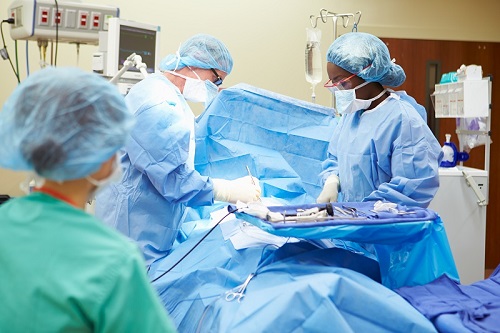Enhanced Recovery after Surgery (ERAS) Kentucky
 Kentucky Anesthesia Group provides a patient-centered surgical experience. Enhanced recovery after surgery (ERAS) is a multimodal perioperative care pathway designed to achieve early recovery for patients undergoing major surgery. We know that enhanced recovery after surgery leads to significant improvements in patient satisfaction, outcomes and reduction in cost of care.
Kentucky Anesthesia Group provides a patient-centered surgical experience. Enhanced recovery after surgery (ERAS) is a multimodal perioperative care pathway designed to achieve early recovery for patients undergoing major surgery. We know that enhanced recovery after surgery leads to significant improvements in patient satisfaction, outcomes and reduction in cost of care.
Enhanced recovery after surgery is a multidisciplinary approach to the care of the surgical patient. ERAS process implementation involves a team consisting of surgeons, anesthesia professionals and staff from units that care for the surgical patient. Enhanced recovery after surgery protocols improve outcomes and patients’ overall experiences.
ERAS represents a paradigm shift in perioperative care in two ways. First, it re-examines traditional practices, replacing them with evidence-based best practices when necessary. Second, it is comprehensive in its scope, covering all areas of the patient’s journey through the surgical process.
With enhanced recovery, surgeons, anesthesiologists, anesthetists and nurses all work together. They have the intention of quickly and efficiently getting patients back to their baseline functional status. ERAS protocols have an over 40% reduction in major complications and up to a 30% reduction in length of hospital stay.
Kentucky Anesthesia Group knows that with ERAS patients have an overall positive surgical experience. Enhanced recovery after surgery protocols have these phases:
- Preoperative phase: This is a continuation of the preadmission process. Patients can consume carbs up until two hours before surgery instead of stopping the day before.
- During surgery: Anesthesia, medications and fluids are customized to the needs of each patient, with an emphasis on minimizing the use of opioids to help achieve effective pain control after surgery.
- After surgery: The process includes getting the patient out of bed and early ambulation. Having the patient eat soon after surgery and using non-sedation pain medication.
The key factors that keep patients in the hospital after surgery include the need for parenteral analgesia, the need for intravenous fluids and bed rest caused by lack of mobility. Kentucky Anesthesia Group strives to keep our patients educated and engaged in their care plan. Our experienced team makes sure our patients have the highest level of patient comfort before and during their surgery. Since inception, our goal has been to always provide quality anesthesia care. We strive for the continued improvement of anesthesia care in the communities in which we serve. We make every effort to take the best possible care of our patients with every anesthetic.
ERAS pathways have the potential to improve quality of life, in both the immediate and long-term post-surgical periods. Factors such as earlier resumption of normal activities, reduced need for daytime sleep and reduced fatigue have all been indicated by patients for whom ERAS was implemented.
Our team at Kentucky Anesthesia Group are experts in keeping patients comfortable and pain-free during surgery. The type of anesthesia each patient receives depends on numerous factors, including the type of procedure, medical condition and medical history. Prior to procedures, our anesthesiologists review the patient’s medical history and other information to determine a specific anesthesia care plan.
Kentucky Anesthesia Group is committed to providing the best care throughout every procedure, from putting every patient at ease before the procedure, to providing compassionate care in the recovery room.